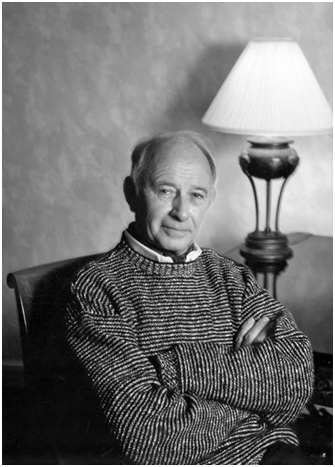PRESS RELEASE: Brian Wildsmith
Oxford University Press
Issued: Oxford, UK, Saturday 3 September 2016

Brian Wildsmith, children’s author and illustrator, who has died aged 86, brought dazzling picture books to generations of children.
Wildsmith was born in 1930 and raised in a small mining village near Sheffield. He won a scholarship to the Slade School of Fine Art, London where he studied for three years. He later taught maths at the Royal Military School of Music but gave it up so that he could pursue his passion for painting.
Brian Wildsmith’s relationship with Oxford University Press began in the late 1950s when the children’s publisher, Mabel George, commissioned him to illustrate twelve colour plates for Tales from the Arabian Nights. This was followed by his ABC, published in 1961, which won the prestigious Kate Greenaway Medal. Recognising his manifold talents, Mabel George encouraged Wildsmith to write as well as illustrate for children. Wildsmith remembered that when he expressed doubts about his writing abilities, Mabel immediately dispelled any such lack of confidence, saying, ‘I have editors with inkpots full of full stops and commas. It’s ideas that count and you’ve got them.’
Bolstered by her words, Wildsmith went on to write and illustrate his retellings of the fables of La Fontaine. These stories, first published in the 1960s and still in print, have a poignant and memorable simplicity but his prose is never patronising to children.
Wildsmith’s idea to use collective nouns – so evocative and idiosyncratic – as the basis for a series of books – Fishes, Birds and Wild Animals – was something original, inspired and ground-breaking. And the paintings in those three books are quite simply breath-taking. They bring you face to wild, dignified face with each animal. His handling of colour and texture captures the sun-baked, wrinkled hide of an elephant or the downy feathers on a baby owl’s breast. Looking at these illustrations now, it is not difficult to imagine the sort of impact their shimmering colours, revolutionary use of abstracted pattern and bold design, and joyous, untrammelled energy must have had at the time.
Wildsmith’s fruitful and creative collaboration with Oxford University Press, so firmly established by Mabel George, continued after her retirement in 1974 with the appointment of Ron Heapy as publisher, a role which he held for more than 20 years. During this period Wildsmith produced some of his best-loved and best-known titles, including A Christmas Story which retells the events of the Nativity with a child’s sense of wonder, and Cat on the Mat – a masterful book which manages, in just seven vibrant pictures and 37 words to tell the story of a territorial tabby cat who sits on a vermillion rug, guarding it with green-eyed jealousy. A succession of animal trespassers invades his space and erodes his feline nerves until he erupts like a firework of fur to despatch his unwanted guests and regain smiling dominion over his woven domain. It’s pure perfection.
Since 2007 – the year that marked the centenary of children’s publishing at Oxford University Press – a number of Wildsmith’s books have been brought back into print, including his illustrated anthology of nursery rhymes, originally published in 1964 and his vivid imagining of The Twelve Days of Christmas, which first appeared in 1972.
During the course of his long-standing association with Oxford University Press, Wildsmith wrote and illustrated more than 80 books. As well as selling extremely strongly in the UK, his books achieved great international reach and have been translated into more than 30 languages.
Michael Rosen remembers the impact Wildsmith’s books had when they appeared in the Sixties: ‘Floods of colour exploding across the pages with a name to match: Wildsmith. He was a wild smith. I remember feeling envious: why hadn’t I had books as wild and lush as these?’
Picture-book maker, Catherine Rayner, has also long been inspired by his work: ‘The balance he managed to create between the character in a storybook and the real creature is perfect. His illustrations provide a lively eyeful of activity and colour along with imaginative composition, which I find truly amazing.’
Through all of Wildsmith’s long career and sparkling achievements his motivation was always to create books that would enchant children and enhance their lives. In an interview in 2006 Wildsmith explained, ‘Children are all-important, and so is art . . . art is food for the soul. And books are a child’s first encounter with art so I felt it was a way I could make a contribution to the world. A drop in the ocean maybe, but picture books offered a chance to communicate the importance of things such as kindness, compassion, friendship, beauty.’ Not only was this an eloquent insight into the capacity of picture books to make a difference, it was also a clear expression of Wildsmith’s sincere and humble personality. He was an immensely thoughtful, compassionate, and perceptive man and these qualities touched all those at Oxford University Press who had the privilege to work with him over the years.
Brian Wildsmith, who moved to France with his family in 1971, lost his wife, Aurélie, in 2015. He is survived by his four children, three grandchildren, and one great-grandchild.
Brian Wildsmith, children’s writer and illustrator, born 22 January 1930 Penistone, Yorkshire, died 31 August 2016 Grasse, France.
ENDS